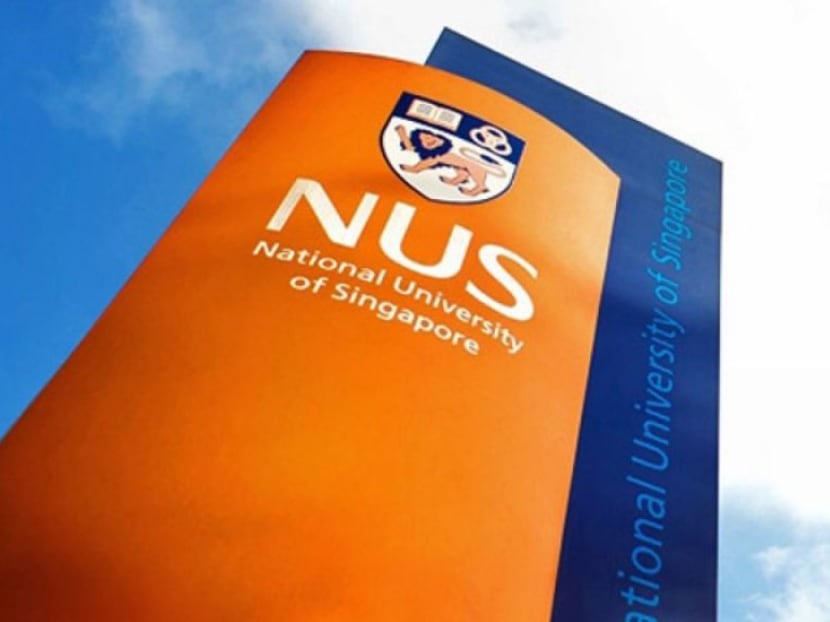NUS to allow non-alumni to take modules, says new president Tan Eng Chye
SINGAPORE — The National University of Singapore (NUS) will open up more places for working adults to take up a wide range of modules – allowing, for the first time, those who are not its alumni to sign up, said newly appointed president Tan Eng Chye on Friday (Jan 5).

The National University of Singapore will open up more places for working adults to take up a wide range of modules – allowing, for the first time, those who are not its alumni to sign up. TODAY file photo
SINGAPORE — The National University of Singapore (NUS) will open up more places for working adults to take up a wide range of modules – allowing, for the first time, those who are not its alumni to sign up, said newly appointed president Tan Eng Chye on Friday (Jan 5).
The proportion of these adults in each class will go up to 20 per cent in the next five years as part of NUS’ effort to “re-imagine teaching and learning for the future”, said Prof Tan at a Shangri-la Hotel luncheon honouring him and his predecessor, Professor Tan Chorh Chuan.
“We will customise learning through innovative techniques that include blended classrooms and technology-enhanced learning,” said Prof Tan.
NUS’ move is in line with the national SkillsFuture movement to train workers, and comes as institutes of higher learning – including universities and polytechnics – take on a bigger role in providing training opportunities.
Last October, SkillsFuture Singapore announced that institutes of higher learning will provide more than 400 SkillsFuture Series courses – covering areas of growth such as data analytics and digital media – to train some 50,000 Singaporeans annually by 2020.
NUS launched its Lifelong Learning Initiative for Alumni last May, and has received more than 8,000 applications for its first batch of 400 places across 79 modules. Given that it was nearly 20 times oversubscribed, the university later said it would open up over 970 places across 85 modules from this year.
Its plans over the next five years include boosting research capabilities by hiring 200 new researchers focusing on areas such as data analytics, fintech and artificial intelligence, said Prof Tan. Currently, NUS has close to 6,000 research staff, including faculty members.
NUS will build more research-based start-ups and social enterprises in cities across Southeast Asia, and Prof Tan said it will also offer “fully funded, bond free opportunities” for undergraduates who show potential to pursue their doctorates at the university.
Meanwhile, tributes flowed for Prof Tan Chorh Chuan at the event, which was attended by President Halimah Yacob, Emeritus Senior Minister Goh Chok Tong, Deputy Prime Minister Tharman Shanmugaratnam as well as Finance Minister Heng Swee Keat and Education Minister (Higher Education and Skills) Ong Ye Kung.
Prof Tan Chorh Chuan, who became NUS’ president in 2008, is now the Ministry of Health’s chief health scientist and executive director of its Office for Healthcare Transformation.
Describing him as a person who “speaks softly but thinks deeply”, Mr Ong said Prof Tan Chorh Chuan had worked hard to uphold a campus culture that promotes critical thinking and takes an evidence-based approach to understand and solve problems.
He was instrumental in overseeing the setting up of Duke-NUS Medical School in 2005 as well as Yale-NUS College in 2011.
Prof Tan Chorh Chuan will be given the title of University Professor, making him the fifth person to receive NUS’ highest academic appointment. Prof Tan Eng Chye said that through “great vision and sheer hard work”, his predecessor transformed NUS into a university “that has become a model for others in the region”.
A Public Service Commission scholar, Prof Tan Chorh Chuan studied medicine at NUS and later received his doctorate there in 1993. Just four years later, at the age of 38, he became the youngest person to be appointed Dean of its medicine faculty.
Other positions he has held include director of medical services at MOH, chief executive of the National University Health System as well as deputy chairman of the Agency for Science, Technology and Research.
He was awarded the Public Service Star award in 2003 for “exemplary leadership” in managing the public health response to the Severe Acute Respiratory Syndrome crisis, as well as the prestigious Meritorious Service Medal in 2015.
In his speech, Prof Tan Chorh Chuan said NUS is today a “strong institution on the move” that is widely respected for being innovative and dynamic.
With the world set to be “even more complex”, he said: “We plan on the basis of certain mental models and assumptions. But we need to constantly check these against fast-moving realities and to decide if, and how, we must change our strategies and approaches.”






